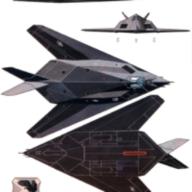What determines the fps of ammunition?
2019-10-24 2:21 am
I am confused what factors play a part in the speed of a bullet. For example, Federal sells 9mm rounds that are 147gn and 1000fps. But Winchester has the 9mm, 147gn but is 950fps. They are both FMJ and both are brass. Both have the boxer Boxer primer. I just don't get it. There are other examples too. What am I missing? Thanks to all...
回答 (13)
2019-10-24 2:31 am
✔ 最佳答案
The load data manufacturing companies use for commercial ammo is often proprietary. Federal may use powder from Alliant for example, Winchester might use the same powder Federal does but they might add a little more, or less flash suppressant (as an example) than Federal uses. Winchester markets their own brand of reloading powder, which some sources claim are actually rebranded Hodgden powders. Regardless, the load data each manufacturer uses for their cartridges determines the performance. Different powders, different brands of primers, different brass thickness and web thickness all play into velocity and downrange terminal ballistics.
2019-10-24 2:40 am
The third factor that you are missing is powder load. Different powders exist using different burn rates and gas expansion factors. I'm not pretending to truly understand this I just know such differences exist. I know handloaders who take great joy in tweaking a particular bullet / primer / powder load to squeeze every possible bit of accuracy out of a given firearm. My hobby is shooting and not reloading. I buy inexpensive range ammo and pull the trigger.
2019-10-24 4:36 am
Powder and primers are what you are forgetting. One could have slightly less or slightly more powder or they can use a different formulation of powder that have different burn characterizations. Also some primers are more powerful than others and that effects how much pressure is made in the cartridge. Another thing you need to take into account is what test barrels the company is using to establish these numbers. barrel lengths and the kind of rifling maybe different. Also never forget to blame the Free Masons. Anytime there is something you cannot understand it is the work of the Free Masons.
2019-10-24 9:28 am
There are a number of factors. Fudge factor is a big one. Test barrel length, condition of test barrel, powder and amount of powder can all affect the velocity.
2019-10-24 7:55 pm
FPS stands for Feet Per Second. So, the fps is calculated by determining how many FEET the bullet travels in ONE SECOND. Usually, a chronograph is used to measure this. A bullet achieves an FPS of greater than zero when some force acts on the bullet...typically the rapidly expanding gases of gunpowder are used.
The amount of expanded gas that acts on the bullet can vary by barrel length and the amount and type of powder.
The FPS of any bullet is greatest when it exits the barrel. After that time, it begins to experience negative acceleration due to drag and gravity. How fast is loses FPS depends on altitude, humidity, temperature, wind, and the bullet's aerodynamics (ballistic coefficient).
The amount of expanded gas that acts on the bullet can vary by barrel length and the amount and type of powder.
The FPS of any bullet is greatest when it exits the barrel. After that time, it begins to experience negative acceleration due to drag and gravity. How fast is loses FPS depends on altitude, humidity, temperature, wind, and the bullet's aerodynamics (ballistic coefficient).
2019-10-24 12:34 pm
In your case, it is the amount of charge by the weight of powder.
Barrel length is ever important here presuming the same barrel length to determine the velocity.
Different powders have different burn rates that can determine chamber pressures that equate to muzzle velocity.
So the bare factors that determine muzzle velocity are the projectile weight, the chamber pressures, and the barrel length.
IE: The .220 Swift remains the fastest commercial cartridge in the world, with a published velocity of 4,665 ft/s (1,422 m/s) using a 29 grain bullet and 42 grains of 3031 powder.
My .45 I shoot Federal hydrashok 230 grain in a 5 inch barrel gives me just a hint over 900 Ft/s chrono.
Same bullet in the Colt commander, 4.25 inch barrel chronos 850 Ft/s.
Barrel length is ever important here presuming the same barrel length to determine the velocity.
Different powders have different burn rates that can determine chamber pressures that equate to muzzle velocity.
So the bare factors that determine muzzle velocity are the projectile weight, the chamber pressures, and the barrel length.
IE: The .220 Swift remains the fastest commercial cartridge in the world, with a published velocity of 4,665 ft/s (1,422 m/s) using a 29 grain bullet and 42 grains of 3031 powder.
My .45 I shoot Federal hydrashok 230 grain in a 5 inch barrel gives me just a hint over 900 Ft/s chrono.
Same bullet in the Colt commander, 4.25 inch barrel chronos 850 Ft/s.
2019-10-24 5:01 am
The published fps data for a particular round is only for one particular test barrel. The performance in an actual firearm may be very different. Barrel length and bore tightness effect velocity quite a bit. A .44 magnum round shot from a snubnose pistol will be very different from the same round fired in a lever action rifle.
2019-10-24 8:36 am
If it is a 147 Gn. bullet then most put 147gns. of powder but some only put maybe 100gns. or less and
that will change the speed (FPS) of the bullet. When I reload 9mm I use the full 147gns.
My Uncle would only use 88gns when loading target loads but 147gns when loading full power. Don't
pay attention to incorrect answers as some think they are geniuses.
that will change the speed (FPS) of the bullet. When I reload 9mm I use the full 147gns.
My Uncle would only use 88gns when loading target loads but 147gns when loading full power. Don't
pay attention to incorrect answers as some think they are geniuses.
2019-10-24 7:55 pm
the quantity of powder and the length of the test barrel
2019-10-25 2:21 pm
The main two factors are (Weight of the bullet) and (type and amount of powder.) The length of the barrel also is a factor with longer barrels giving a bit more speed. The slower of the two you mentioned will have less recoil. The bottom line is you try out different types of ammo to see what kind your gun has the best most accurate results with.
2019-10-24 4:50 am
Weapons will be banned December 1st. Seizing will be December 2nd-23rd. All will be seized by Christmas.
2019-10-24 11:14 pm
Pistol ammo comes in two basic flavors - First, as fast as it can go. Second, under 1,000 fps - typically 950fps to 990fps for suppressor use.
2019-10-24 4:46 am
Most ammo is made very cheaply. There are debates over what is more dangerous. The weapon or the ammo? Both are dangerous. Even with no weapon, bullets are dangerous, as they contain lead.
收錄日期: 2021-04-24 07:41:48
原文連結 [永久失效]:
https://hk.answers.yahoo.com/question/index?qid=20191023182149AA22kQQ



